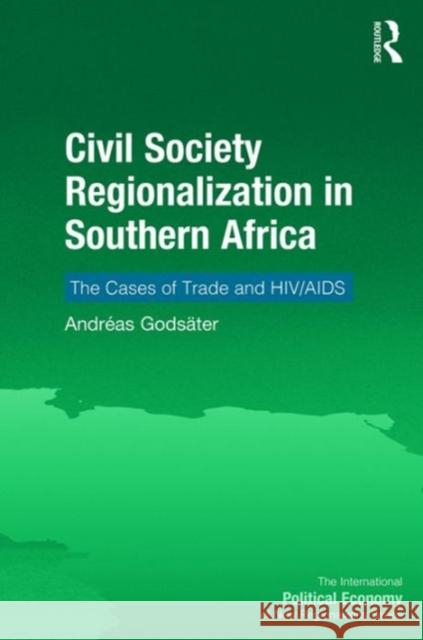Civil Society Regionalization in Southern Africa: The Cases of Trade and Hiv/AIDS » książka
Civil Society Regionalization in Southern Africa: The Cases of Trade and Hiv/AIDS
ISBN-13: 9781472452375 / Angielski / Twarda / 2016 / 186 str.
Civil Society Regionalization in Southern Africa: The Cases of Trade and Hiv/AIDS
ISBN-13: 9781472452375 / Angielski / Twarda / 2016 / 186 str.
(netto: 788,12 VAT: 5%)
Najniższa cena z 30 dni: 730,42
ok. 16-18 dni roboczych.
Darmowa dostawa!
This book investigates civil society regionalization in Southern Africa. The point of departure is the study of 'new regionalism', which refers to the wave of regional integration globally since the 1980s. However, whilst the current regionalism studies undoubtedly contributes to a deeper understanding of regional processes, important gaps remain, in particular the relatively scant emphasis given to civil society. This particularly relates to regions in the global South, including Southern Africa. The overarching aim of this book is therefore to analyse the dynamics of civil society regionalization in Southern Africa, both empirically and from a theoretical perspective, through analysing the cases of trade and HIV/AIDS. The study finds that CSOs can be more active in regional governance than has previously been conceptualized and are also highly active in terms of constructing regionalization through framing issues and, to a less extent, making identities 'regional'. Furthermore, the book enhances knowledge of the heterogeneous nature of civil society regionalization. Lastly, it is demonstrated that 'going regional' is only partly an autonomous process and also has to be understood as under the influence of the deeper statist and capitalist social structures marking the regional order in Southern Africa.











